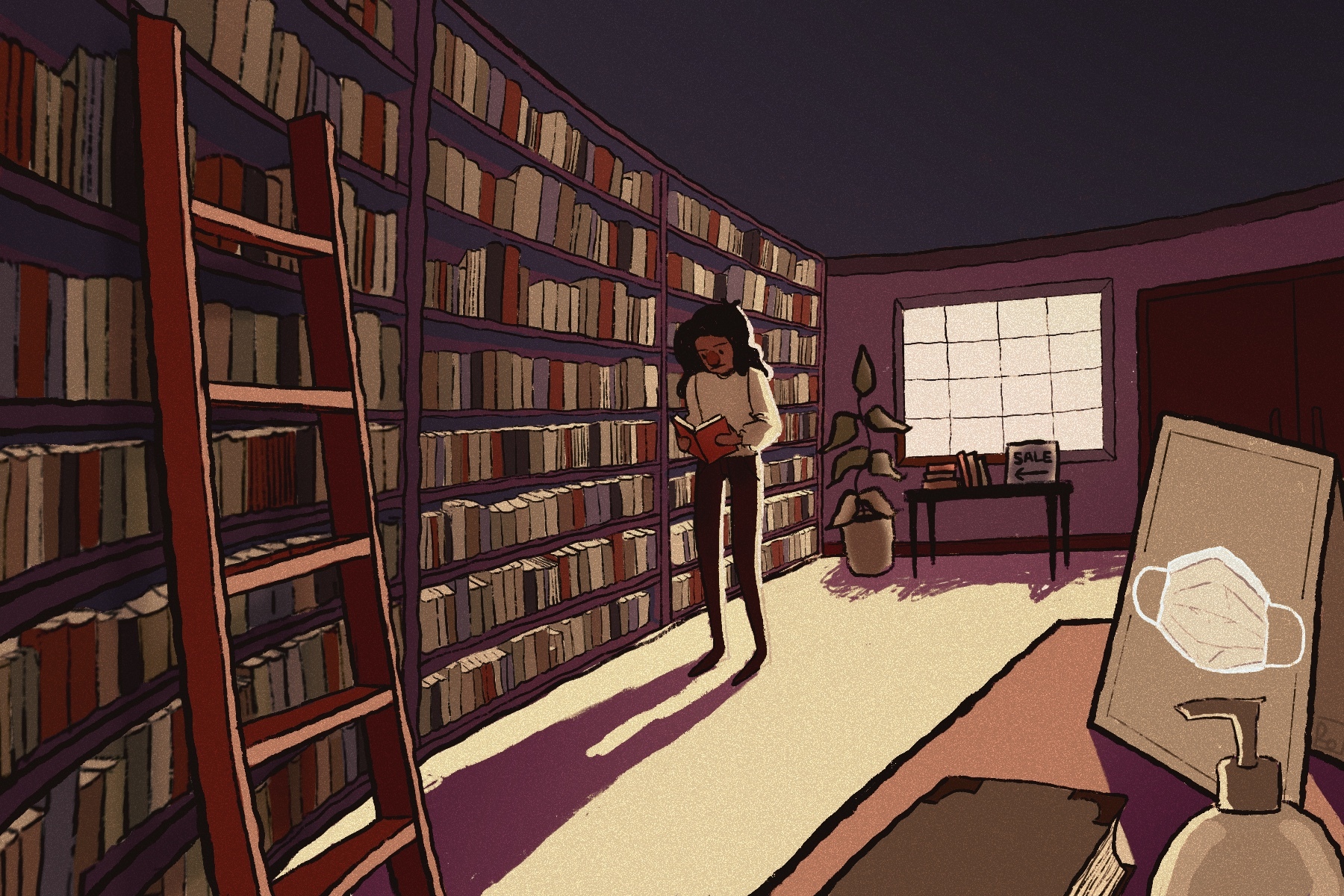Independent bookstores have declined in popularity over the past decade or so, but when the COVID-19 pandemic hit, their lack of sales led to increasing closures.
Despite these setbacks, positive changes in the industry are emerging. Slowly but surely, independent bookstores across America are evolving. Perhaps a new wave of bookstore magic will alter the course of their decline.
The Decline of Bookstores
When Amazon opened its online bookstore in 1995, no one could have guessed how much it would impact the book market. In the years since, major bookstore chains such as Borders and Book World have shut down. Even the well-known Barnes & Noble can’t always keep up with Amazon’s price tags. Amazon purchases now account for more than half of all book sales, and three-quarters of all books or e-books are bought online through the gargantuan retailer.
When COVID-19 forced non-essential businesses to close across the U.S. in early 2020, independent bookstores closed their doors to customers and feared they might not reopen — and because of Amazon’s dominance in online sales, many independent bookstores were already struggling to stay afloat.
Booksellers worried that a long closure might shift consumer habits even further toward online buying and break the community bond they had spent years developing.
Although book buyers are already growing used to buying online, the concept isn’t detrimental to the survival of bookstores. In fact, some online purchases are helping bookstores stay alive.
A Slow Return
Though COVID-19 quickly changed how booksellers operate their business and even caused some independent bookstores to permanently close, most bookstores have reason to remain hopeful for a return to some degree of normalcy even if the stakes are high.
“If Amazon really wipes out independent bookstores, the end result isn’t just going to be that they get all the book sales in the world,” Andy Hunter, the founder of Bookshop.org, said in an article with TIME Magazine. “It’s going to be that people read fewer books, join fewer communities.”
Bookshop.org is an online bookshop that launched in early 2020 and is dedicated to financially supporting independent and local bookshops. The online shop allows independent bookstores to create their own virtual storefronts on the site.
The independent stores receive 30% of a book’s cover price for each sale made through their shopfront on the site; if a customer buys a book without going through a specific shop, 10% of that book’s cover price is placed into a “central pot” that is split among all participating shops.
Books are also offered at a small discount to customers and are delivered within two to three days. This is a business model similar enough to Amazon’s, yet designed to give back to independent booksellers and their communities.
Within just a few months, the company’s daily sales increased to over $150,000 worth of books, and they have now raised a total of $15,429,000 for bookstores as of August 2021. Numerous booksellers have praised Bookshop.org for their efforts and credit the online shop for bringing attention to their struggles. Since the rise of Bookshop.org, many bookstores have overcome their financial hardships, knowing that they still have loyal customers and others looking out for them.
Additionally, numerous bookstores have opened across the United States over the course of the pandemic, or are otherwise raising funds to do so. In Minneapolis-St. Paul, Minnesota, Dionne Sims opened an online bookstore called Black Garnet Books, which markets itself as “the only Black-owned bookstore in Minnesota primarily stocking Adult and YA contemporary literature by Black and racially-diverse authors.”
The store’s mission is to eventually open a “physical space for the community to connect in, with diverse books as the foundation,” though the online store is doing well on its own for now. Through online support, Sims raised over $112,000 on her GoFundMe page for the store.
Sims also told the Star Tribune, “I’m trying to be really intentional about the timeline. My plan for this bookstore is to make sure that it’s sustainable and can stay in the Twin Cities longer than previous Black-owned bookstores.” Evidently, the pandemic has created an opportunity for Sims and other online store owners.
As booksellers adapt to online business models, this unprecedented time of transition could exemplify just how determined bookstores are to succeed. For the owners, book sales are not only important for keeping their incomes steady, but also for the role of books in American communities.
More Than Just Books
Earlier this summer, Jenny Lawson opened Nowhere Bookshop in San Antonio, where it became one of the city’s first general interest, independent bookstores in over a decade. Lawson is a New York Times bestselling author and was able to create hype for the bookshop through her 142,000 followers on Instagram. Before its grand opening in July, the store survived off of curbside sales and branded merchandise mostly purchased by fans of Lawson’s books, and the delay in its opening seemed to give the bookstore time to grow its community before the audience even had a chance to step inside.
Now, customers who walk into Nowhere Bookshop can find novels from a wide variety of genres. They will also find themselves drawn to the sense of community in every colorful corner of the shop. The place is filled with quirky artwork and décor, creating a cozy feeling quite unlike other bookstores in the area.
Although COVID-19 restrictions have tightened since Nowhere’s opening, Lawson hopes to eventually host social gatherings in a large room dedicated to future book clubs, poetry groups and more. She also plans to serve drinks at the bar at the back of the store, which she anticipates will draw even more customers. “To me this all goes back to the English pub or somewhere you can bring a book to read,” she said to the San Antonio Express-News. “I want this to feel like a safe place where anyone can drink — or not drink — and sit and relax.”
Bookstores, compared to online stores like Amazon, will continue to thrive because they offer something you can’t get anywhere else: a physical sense community.
Stepping into a bookstore and wandering the shelves gives people a connection with other customers — one that cannot be replicated by browsing online. Independent bookstores often provide a creative and homey feeling that chain stores cannot produce.
“When we arrived, it was like stepping into the best kind of party,” said Lauralei Garrity in an article about the evolution of bookstores. She described her heartwarming experience of stepping into Dudley’s Bookshop Café, one of the best indie bookstores in Oregon. “Groups of readers filled the store with excited chatter. As I made my way through the crowd, I picked up familiar titles and authors being discussed; the sound electrified me. It was like a homecoming. I belonged there.”
Independent bookstores are about more than just the books on the shelves or the convenience of knowing you can purchase your book on the spot. Bookstores thrive off of community and the distinct spaces booksellers can create for their visitors.
To many, bookstores are places where they can find like-minded people to bond with and participate in local events to benefit the store, the authors involved and the customers themselves. They can also be quiet places to relax or even enjoy a nice drink or two while catching up on a good novel. Either way, bookstores represent the communities they create over time and provide spaces for readers to find their “homes” as well.
Amazon may save you a dollar, but nothing beats the joy of entering a world full of community, creativity and books. And because of their strong communities, bookstores will continue to succeed for decades to come.















